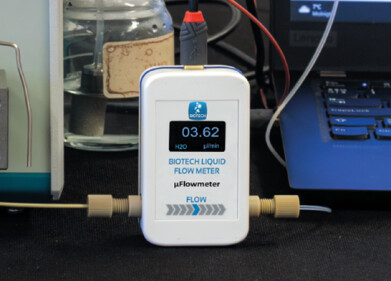-
 Up-regulation of the oncogene Rab33B is detected in ischemic brain tissue using LC-MS
Up-regulation of the oncogene Rab33B is detected in ischemic brain tissue using LC-MS
HPLC, UHPLC
LC-MS identifies oncogene Rab33B in ischemic brain tissue
Nov 26 2010
Ischemia occurs when oxygen is unable to reach the tissue in the brain and is the most common cause of stroke.
Typically, it is caused by the blockage of a vessel elsewhere in the body, unlike haemorrhagic stroke which occurs when weakened vessels within the brain itself bleed into the tissue.
A study published in Experimental & Translational Stroke Medicine reports the findings of LC-MS research into the after-effects of ischemic attack.
Specifically, the scientists focused on levels of Rab33B, a known oncogene which, if expressed to a significantly high degree, can be associated with the formation of tumours.
They found a time-dependent link between ischemia in the brain and the number of cells found to be positive for content of Rab33B, with a general up-regulation of the oncogene throughout the ischemic striatum.
Digital Edition
Chromatography Today - Buyers' Guide 2022
October 2023
In This Edition Modern & Practical Applications - Accelerating ADC Development with Mass Spectrometry - Implementing High-Resolution Ion Mobility into Peptide Mapping Workflows Chromatogr...
View all digital editions
Events
ACS National Meeting - Fall 2024
Aug 18 2024 Denver, CO, USA
Sep 04 2024 Chiba, Tokyo, Japan
Sep 04 2024 University of Warwick, Coventry, UK
Sep 10 2024 Rockville, MD, USA
Plastics Recycling World Expo Europe
Sep 11 2024 Brussels, Belgium













